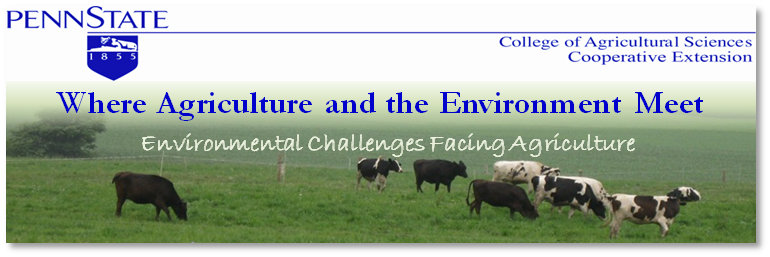 |
| http://school.discoveryeducation.com/clipart/clip/milk.html |
Some consumers are willing to pay extra for organic milk to support the method of production of that particular product even though the actual product is not different from conventionally produced milk. Would consumers be willing to make that same choice for milk that has an “Environmentally Friendly” label? That is a question that is being tossed around these days as a way to make improving local water quality and the Chesapeake Bay more financial feasible.
The quality of the water in local waterways and the Chesapeake Bay is gaining a great deal of attention lately after President Obama issued an Executive Order in May 2009 designating the Chesapeake Bay as a national treasure that needs to be preserved. Also, the requirement for a TMDL (total maximum daily load), or a pollution diet for the Chesapeake Bay watershed, have put everyone and every practice within the Chesapeake Bay Watershed under a microscope. Agriculture is especially feeling the heat. Even though agriculture has made more progress in reducing nitrogen, phosphorus, and sediment going to the Chesapeake Bay than any other segment, they are still the largest contributors of nitrogen, phosphorus, and sediment to the bay overall.
Although everyone agrees that they want clean waterways, the economic crisis is making achieving those goals even more difficult. The economy has hit everyone, but dairy farmers were especially hit hard with low milk prices and high feed costs in 2009. Although the milk price paid to farmers has increased in recent months it is not enough to make up for the huge losses that occurred last year and it will take many years for the dairy industry to recover. Therefore, convincing farmers to spend money they don’ t have on a management practice that may be good for water quality but will not increase milk production or bring in extra income is a very hard sell. In other businesses, when increased regulation requires capital investment the cost of that investment is passed on to the consumer of that product, but farmers do not have that luxury. Farmers are paid based on the amount of milk they produce and the pounds of fat and protein in the milk, not the method of production (except for organic). However, what if a new brand of milk were produced similar to how organic milk is marketed where consumers would pay a premium for milk produced on farms that met curtain environmental and nutrient management requirements and the premium paid by consumers would be passed onto the farmers that made the capital investment to improve the environment.
In order to truly improve local water quality and the Chesapeake Bay everyone in the watershed will have to do their part, and it is not fair to expect one segment of the community to carry so much of the burden. Many farmers have a desire to reduce what environmental impact they may be having, and many have taken those steps on their own and invested their own money with no hope of seeing any financial payback for their investment. However, there are others that just don’t have the money to spare and this type of program might take a best management practice from too expensive to doable. Of course developing a new label and monitoring that the farms that sell their milk under that label are doing what they are supposed to do is not a simple task, but improving water quality in the entire Chesapeake Bay watershed will take every idea there is.

For centuries people have tried to predict earthquakes-with no success. Magnetic signals from rocks deep inside the earth are the latest prospect.
ReplyDeleteI have setup some websites for You. Let's visit and relax with us:
predict science
prdictions
who is edgar casey
cayce edga
are edgar cayce
what is the environment
environment topics
environment
seminar topics
water pollution
topics on the environment
topics for environment